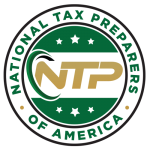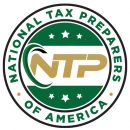Tax payers perform the tactical task of filing tax returns every year. Any discrepancy found in the taxes calls for a tax audit. If it is found wilful, the discrepancy is termed as a tax fraud, the consequences of which can be life destroying.
Tax fraud is a deliberate attempt to evade taxes or to defraud the IRS. Tax fraud includes:
* False exemptions or deductions * Kickbacks * A false or altered document * Failure to pay tax * Unreported income * Organized crime * Failure to withhold * Failure to follow the tax laws
How Does the IRS Determine Tax Fraud?
The IRS defines tax fraud as “the willful and material submission of false statements or false documents in connection with an application and/or return.” To make this determination, investigators will look for any indicators of fraud such as, but not limited to:
·Underreporting income
·Using a false Social Security number
·Falsifying documents
·Intentionally failing to pay taxes
If these common indicators are absent, the IRS typically assumes that an unintentional mistake has occurred due to negligence. This might not lead to criminal charges of a tax fraud, but you may be subject to an accuracy related penalty. This penalty is levied on your taxes and can equate up to 20 percent of the underpayment.
It’s also important to remember your right to an attorney as well, especially if you believe a tax fraud charge has been levied against you in error. These attorneys, or Tax fraud lawyers, help you build up a case to prove your innocence against the IRS.
Tax Fraud Punishment
Although the penalties for tax negligence may seem severe, those that apply in cases of a tax fraud conviction are even more severe. A failure to file can come with up to one-year imprisonment and a monetary penalty of $100,000, while an attempt to evade taxes can come with up to five-years imprisonment and a $250,000 fine.
How To Inform IRS about a Tax Fraud
If you have any information about a committed tax fraud, you may send a letter to the IRS or use Form 3949-A. Include as much information as possible in your letter, including:
* The name and address of the person or business you’re reporting * The individual’s Social Security number or the business’ Employer Identification Number * A brief description of the tax fraud you are reporting, including how you became aware or obtained the information * The years of the suspected tax fraud * The estimated dollar amount of any unreported income * Your name, address and telephone number(You are not required to identify yourself, but this information is helpful to us.
To claim a reward for information about tax fraud, use _Form 211, Application for Award for Original Information _.The IRS is /required /*to issue an award to tax whistleblowers of 15% to 30%* of proceeds collected from tax fraud or tax underpayments.
The above mentioned consequences of tax fraud by will or by sheer negligence, are life altering. Hence utmost care and precision is necessary. This can be professionally provided by the tax experts at the National Tax Preparers of America (NTPA) to ensure accurate tax returns.
What is a Tax Policy?
The tax season is upon us and so are the tax related queries for us to ponder. But what are taxes exactly? Taxes are a part of the Tax policy which is the choice made by a government as to what charges to levy, in what amounts, and on whom.
The tax policy is often a subject of critique by the Tax Policy Center (TPC), officially the Urban-Brookings Tax Policy Center, is a nonpartisan^think tank based in Washington D.C. A joint venture of the Urban Institute and the Brookings Institution, it aims to provide independent analysis of current and longer-term tax issues, and to communicate its analysis to the public and to policymakers. TPC combines national specialists in tax, expenditure, budget policy, and microsimulation modeling to concentrate on five overarching areas of tax policy: fair, simple and efficient taxation, social policy in the tax code, business tax reform, long-term implications of tax and budget choices, and state tax issues.
As is the case with most government policies, the tax policy too is under constant fire by the tax payers. In such an effort to “correct” the present tax system, the Fair Tax Plan was proposed to the government. Some salient features of the Fair Tax Plan are-
1.The Fair Tax Plan is a sales tax proposal to replace the current U.S. income tax structure.
2.It abolishes all federal personal and corporate income taxes, the alternative minimum tax.
3.It ends all taxes on gifts, estates, capital gains, Social Security, Medicare, and self-employment.
4.The plan replaces them with a federal retail sales tax of 23% to be administered by state sales tax authorities. The sales tax would not apply to imports, commodities used in production, or used goods.
Supporters of the Fair Tax Plan believe that a 23% sales tax is regressive because it impacts the poor the most. To make it more progressive, the Fair Tax Act proposes that all Americans receive a monthly “prebate”, which would be equal to the 23% tax on the monthly cost of living at the poverty level. According to the Department of Health and Human Services, the poverty level for a family of four was $26,200 in 2020, so the prebate would be $6,026 a year.
Tax are drafted and implemented by The Office of Tax Policy. The main functions of the Office include-
1. Developing and implementingtax policies and programs
2.Reviewing regulations and rulings to administer the Internal Revenue Code
3.Negotiating tax treaties
4.Providing economic and legal policy analysis for domestic and international tax policy decisions, and
5.Providing estimates for the President’s budget, fiscal policy decisions, and cash management decisions.
As we now approach the dreaded deadline of April 15, taxes are more important than ever to the average tax payer. They are dreaded more so because one and all understand the consequences of filing their taxes wrong. This is where the tax experts at National Tax Preparers of America (NTPA) can help you get through this tax season safe and free of anxiety.
A definitive guide to Tax Preparation
The IRS calls for a tax season every year to collect taxes on all levels including federal, state and local. To prepare ourselves better for the tax season, let’s gloss over all things we need to know about taxes in 2021.
·Tax Liability
Tax liability is the total amount of tax debt owed by an individual, corporation, or other entity to a taxing authority like the Internal Revenue Service <www.investopedia.com/terms/i/irs.asp> (IRS). Tax liabilities are incurred when income is earned, there is a gain on the sale of an asset, or another taxable event occurs.
It must be noted that an individual’s or corporation’s tax liability doesn’t only include the current year but also the previous years for which taxes are owed. That means that if there are back taxes <www.investopedia.com/terms/b/back-taxes.asp> due, those are added to the tax liability as well.
Your total tax liability is the total amount of tax you owe from liabilities like income tax, dividend tax, capital gains tax, self-employment tax, and any penalties or interest. We further discuss some of these notable tax liabilities.
·Income Tax
*Income tax* is *a* type *of tax* that governments impose on *income* generated by businesses and individuals within their jurisdiction. By law, taxpayers must file an *income tax return* annually to determine their *tax* obligations.
·Capital gains tax
The capital gains tax <www.thebalance.com/capital-gains-tax-guide-for-investors-357401> is a government fee on the profit made from selling certain types of assets. A capital gain is calculated as the total sale price minus the original cost of an asset.
·Dividend Tax
A *dividend tax* is a *tax* imposed by a jurisdiction on *dividends* paid by a corporation to its shareholders (stockholders). A dividend tax rate is applied based on the income made.
These various types of taxes have to be strategically planned and sorted to negate all possible tax related mistakes. This is where tax planning strategies come handy.
·Tax Planning strategies
Tax payers can strategically plan their taxes every year and perhaps save much more than if taxes were unplanned. Various refunds are missed out on without tax planning. These mistakes can be reduced by using some of these below mentioned tax planning strategies-
1.Understanding your tax bracket
2.Tax deductions and tax credits
*3.*Knowing what tax records to kee*p*
*4.*Health Accounts**
*5.*Estate and Inheritance Tax Planning**
To add to the various forms and processes that are involved in tax preparation, the repercussion for a tiny discrepancy is an IRS tax audit.
·Tax Audit
Smallest of discrepancies found in one’s tax returns can invite a tax audit from the IRS.A tax audit is when the IRS decides to examine your tax return a little more closely and verify that your income and deductions are accurate.
Once the Audit process is done, there are three possible outcomes-
1.If the IRS is satisfied with the documentation you provide, then it will not change anything on your tax return.
2.If the IRS proposes changes to your tax return, you can either agree and accept the changes or challenge the agent’s assessment. If you agree, you will sign an examination report or forms provided by the IRS and agree upon some type of payment arrangement.
3.If you disagree with the findings, you can set up a conference with an IRS manager to further review your case or you can request a formal appeals conference.
Not only raises the stakes this season but also raises the alarm that we need to get our taxes done from the best tax preparers near you, with the optimum qualifications.
·Tax Preparers
With the requirement of professional tact and experience that comes with tax preparation, tax preparers are what we need this tax season in2021. A tax preparer is an individual who prepares, calculates, and files income tax returns on behalf of individuals and businesses. There are several different types of tax preparers, with some having credentials issued by third-party organizations while others are non-credentialed preparers.
Tax software is a type of computer software designed to help individuals or companies prepare for and file income, corporate and similar tax returns. With some training and practice, tax softwares help us to calculate and file our taxes with ease.
Various softwares for tax preparers are available in the market for use. Individuals as well as tax preparers can use softwares like-
1.Tax Softwares
2.TurboTax
3.H&R Block
4.TaxAct
Choosing the correct tax preparer for you is essential to make sure that your tax returns are accurate. Inaccuracy in tax returns is not only illegal by law but also results in potential losses to the individual and to the company. Tax related problems can also be resolved by certain professionals other than tax preparers.
·Tax Resolution
Tax resolution is the process of working with the IRS and tax professionals to find a solution to your tax problems. The IRS might have an issue with your tax return or tax situation in a few instances like to verify you are reporting the appropriate amount of income and claiming legitimate deductions. Such cases call for tax resolution. Some exact instances when you might use tax resolution services include:
1.Audit Representation
2.Transcript Protest
3.Non-Collectible Debt
4.Tax Penalties
5.Compromising With The IRS
Like the second chance that is provided to the tax payers to resolve their tax problems, the IRS too helps the tax payers using various policies.
·Tax Extension
A filing extension is an exemption that can be opted by either individual taxpayers or businesses that are unable to file a tax return by the due date. Some states accept IRS extensions, but others require taxpayers to file a separate state extension form.
Though tax extensions allow you longer time to file your taxes, it is often assumed that this might allow you a delay in the payment of the said taxes too, though that is not the case. Here are some basic points about Tax Extension to remember-
* An extension of time to file your return does not grant you any extension of time to pay your taxes. * You should estimate and pay any owed taxes by your regular deadline to help avoid possible penalties. * You must file your extension request no later than the regular due date of your return.
·Tax relief is any government program or policy that is implemented by the government to reduce the amount of taxes paid by individuals or businesses. It may be a universal tax cut or a targeted program that benefits a specific group of taxpayers or bolsters a particular goal of the government. Tax relief is intended to reduce the tax liability of individuals or businesses.
·An individual or business entity typically gets tax relief through tax deductions, credits, or exclusions, and by the forgiveness of a loan.
The IRS is also compassionate towards the various unforeseen economical setbacks faced by the tax payers. Policies like tax refunds, stimulus checks, etc, are provided for the same.
·Stimulus Check
A stimulus check is a check sent to a taxpayer by the U.S. government. Stimulus checks are intended to stimulate the economy by providing consumers with some spending money. When taxpayers spend this money, it drives revenues at retailers and manufacturers and thus spurs the economy as the taxpayers too enjoy the benefits. Stimulus checks are thus a win-win situation for all tax payers eligible.
The Tax preparation system is a well oiled chain which works when dealt with extreme care and professionalism. The tax experts at the National Tax Preparers of America (NTPA) will ensure a tax season full of savings with no hassles for you.
What are Tax Reliefs?
Tax relief is any government program or policy that is implemented by the government to reduce the amount of taxes paid by individuals or businesses. It may be a universal tax cut or a targeted program that benefits a specific group of taxpayers or bolsters a particular goal of the government. Tax relief is intended to reduce the tax liability of individuals or businesses.
An individual or business entity typically gets tax relief through tax deductions, credits, or exclusions, and by the forgiveness of a loan.-
·Tax Deductions
The reduction of taxable income using legal deductions is a form of tax relief. The most commonly-used federal tax deduction is the one for home mortgage interest.A tax deduction reduces the taxable income of a taxpayer.
·Tax Credit
A tax credit is another form of tax relief, and it is one that provides greater savings than a tax deduction. A tax credit is directly subtracted from the individual’s total amount of tax owed after all deductions are made.
·Tax incentive
This type of tax relief is often described as a tax incentive because it reimburses taxpayers for expenditures that the government deems worthwhile. For example, the American Opportunity Credit and the Lifetime Learning Credit programs allow tax credits to be taken by people who enrol in post-secondary education programs.
·Tax Exclusions
Exclusions classify certain types of income as tax-free or as tax relief, reducing the amount that a taxpayer reports as gross income.
·Debt forgiveness
The IRS has a program called Fresh Start <www.irs.gov/pub/irs-utl/oc_theirsfreshstartprogramcanhelpyoupayyourtaxesfinal.pdf> that offers a number of options for taxpayers to settle outstanding tax debts, often for a percentage of the original liability.^The agency can provide a tax relief arrangement to help people pay the reduced tax amounts over time and avoid a tax lien.
·Tax Penalty Relief
You may qualify for relief from penalties if you made an effort to comply with the requirements of the law, but were unable to meet your tax obligations, due to circumstances beyond your control.
If you received a notice, be sure to check that the information in your notice is correct. If you can resolve an issue in your notice, a penalty might not be applicable.
Penalties eligible for penalty relief include:
-Failing to file a tax return
-Failing to pay on time
-Failing to deposit certain taxes as required
-Other penalties as applicable.
With the Tax season fast approaching, tax payers now need to get their paperwork and the various tax details sorted out. This enables the tax payers to file returns on time and also benefit from various tax relief programs initiated by the IRS. The professional tax preparers at National tax Preparers of America will help you achieve both and have an effortless
Dividend Tax- All you need to know

Tax returns are filed to the IRS by individual tax payers as well as corporations. But some key differences like the dividend taxes set the corporate tax payers apart. A *dividend tax* is a *tax* imposed by a jurisdiction on *dividends* paid by a corporation to its shareholders (stockholders). A dividend tax rate is applied based on the income made.
For tax purposes, there are two kinds of dividends: qualified and nonqualified (sometimes called “ordinary”), each with different tax implications that impact an investor’s net return.
·A qualified dividend is a dividend that falls under capital gains tax <nationaltaxpreparersofamerica.com/a-quick-guide-to-capital-tax-rate/> rates that are lower than the income tax <www.investopedia.com/terms/i/incometax.asp>.
The tax rate on qualified dividends is 0%, 15% or 20%, depending on your taxable income and filing status.
1.The tax rate on qualified dividends for investors that have ordinary income taxed at 10% or 12% is 0%.
2.The tax rate on qualified dividends is capped at 20%, which is for individuals in the 35% or 37% tax brackets <www.investopedia.com/terms/t/taxbracket.asp>.
Qualified dividends come with the tax advantage of a lower tax rate. Three things usually determine whether a dividend is qualified:
*1.**It is paid by a U.S. corporation or qualifying foreign entity.*
*2.**It is actually a dividend in the eyes of the IRS-*
Some things don’t count as dividends, despite what they might be called, including:
-Premiums an insurance company kicks back
-Annual distributions credit unions make to members
-“Dividends” from co-ops or tax-exempt organizations
*3.**You held the underlying security for long enough.*
If you own the security for more than 60 days during the 121-day period that began 60 days before the ex-dividend date, the dividend is usually qualified.
·Tax rates for ordinary dividends <www.investopedia.com/terms/o/ordinary-dividends.asp> (typically those that are paid out from most common or preferred stocks) are the same as standard federal income tax rates, or 10% to 37% for tax year 2020.
The tax rate on nonqualified dividends the same as your regular income tax bracket. In both cases, people in higher tax brackets pay a higher dividend tax rate.
Those that pay income tax rates greater than 12% and up to 35% (for ordinary incomes of up to $434,551) have a 15% tax rate on qualified dividend.
Dividend tax forms a vital part of tax returns for businesses, small and big, and even for major corporations. Bigger the business, bigger the amount of work to be done, hence bigger is the paperwork and bigger the chance of committing a mistake. Using professional tax preparing services like the ones offered by the National Tax Preparers of America, you make sure to avoid all follies and file accurate, effortless tax returns.
Tax returns are filed to the IRS by individual tax payers as well as corporations. But some key differences like the dividend taxes set the corporate tax payers apart. A *dividend tax* is a *tax* imposed by a jurisdiction on *dividends* paid by a corporation to its shareholders (stockholders). A dividend tax rate is applied based on the income made.
For tax purposes, there are two kinds of dividends: qualified and nonqualified (sometimes called “ordinary”), each with different tax implications that impact an investor’s net return.
·A qualified dividend is a dividend that falls under capital gains tax <nationaltaxpreparersofamerica.com/a-quick-guide-to-capital-tax-rate/> rates that are lower than the income tax <www.investopedia.com/terms/i/incometax.asp>.
The tax rate on qualified dividends is 0%, 15% or 20%, depending on your taxable income and filing status.
1.The tax rate on qualified dividends for investors that have ordinary income taxed at 10% or 12% is 0%.
2.The tax rate on qualified dividends is capped at 20%, which is for individuals in the 35% or 37% tax brackets <www.investopedia.com/terms/t/taxbracket.asp>.
Qualified dividends come with the tax advantage of a lower tax rate. Three things usually determine whether a dividend is qualified:
*1.**It is paid by a U.S. corporation or qualifying foreign entity.*
*2.**It is actually a dividend in the eyes of the IRS-*
Some things don’t count as dividends, despite what they might be called, including:
-Premiums an insurance company kicks back
-Annual distributions credit unions make to members
-“Dividends” from co-ops or tax-exempt organizations
*3.**You held the underlying security for long enough.*
If you own the security for more than 60 days during the 121-day period that began 60 days before the ex-dividend date, the dividend is usually qualified.
·Tax rates for ordinary dividends <www.investopedia.com/terms/o/ordinary-dividends.asp> (typically those that are paid out from most common or preferred stocks) are the same as standard federal income tax rates, or 10% to 37% for tax year 2020.
The tax rate on nonqualified dividends the same as your regular income tax bracket. In both cases, people in higher tax brackets pay a higher dividend tax rate.
Those that pay income tax rates greater than 12% and up to 35% (for ordinary incomes of up to $434,551) have a 15% tax rate on qualified dividend.
Dividend tax forms a vital part of tax returns for businesses, small and big, and even for major corporations. Bigger the business, bigger the amount of work to be done, hence bigger is the paperwork and bigger the chance of committing a mistake. Using professional tax preparing services like the ones offered by the National Tax Preparers of America, you make sure to avoid all follies and file accurate, effortless tax returns.
Tax Planning Strategies- A Quick Guide
Taxpayers are abided by the IRS to pay their taxes every year, burning a hole in the taxpayers’ budgets. This hole can be reasonably reduced by using some of these below mentioned tax planning strategies-
1.Understanding your tax bracket
The first tax planning tip is to understand what federal tax bracket you’re in.
But no matter which bracket you’re in, you probably won’t pay that rate on your entire income because-
(1)You get to subtract tax deductions to determine your taxable income (that’s why your taxable income usually isn’t the same as your salary or total income).
(2)You don’t just multiply your tax bracket by your taxable income. Instead, the government divides your taxable income into chunks and then taxes each chunk at the corresponding rate.
2.Tax deductions and tax credits
Tax deductions and tax credit both reduce your tax bill but in very different ways. Knowing the difference can create some very effective tax strategies that reduce your tax bill.
·Tax deductionsare specific expenses you’ve incurred that you can subtract from your taxable income. They reduce how much of your income is subject to taxes.
·Tax creditsgive you a dollar-for-dollar reduction in your tax bill. A tax credit valued at $1,000, for instance, lowers your tax bill by $1,000.
3.Knowing what tax records to keep
Keeping tax returns and the documents you used to complete them is critical if you’re ever audited <nationaltaxpreparersofamerica.com/us-tax-audits-how-to-deal-with-them/>. Keep records longer in certain cases like the ones listed below, wherein the IRS can audit you even after a period of 3 years-
·Six years:If you underreported your income by more than 25%.
·Seven years:If you wrote off the loss from a “worthless security.”
·Indefinitely:If you committed tax fraud or you didn’t file a tax return.
4.Health Accounts
For Health Savings Accounts (HSAs), the 2020 annual contribution for a family has increased to $7,100 ($3,550 for individual). If you have a flexible spending account, monitor the balance in your account so you do not lose unused funds by the end of the plan year. This tax planning strategy is particularly useful when it comes to business tax planning in businesses that provide Health Accounts.
5.Estate and Inheritance Tax Planning
/Planning/ your inheritance is the key to maximizing the value you pass on to your loved ones from your /estate/. Inheritance of estate or money or valuable is not subject to taxes unless further finances are generated from them. But there are some tax planning strategies for the same like-
* Continue making annual exclusion gifts — up to $15,000 to any individual per year. * If you are under the exemption amounts, focus on income tax basis planning. * Make sure all of your estate planning documents are up to date; non tax-related estate planning remains critical.
Various tax planning software are also available for the above mentioned strategies. But tactical strategies like these require professional help. National Tax Preparers of America and its team of experts promises to maintain accuracy in your taxes and to increase the amount you save every year.
Roth IRA- All your questions, answered
While taxpayers file tax returns to the IRS during their working tenure, the IRS also provides facilities to form Individual Retirement Accounts (IRAs) and Roth IRAs.
A Roth IRA is an individual retirement account (IRA) that allows qualified withdrawals on a tax-free basis provided certain conditions are satisfied. Established in 1997, it was named after William Roth, a former Delaware Senator.
Roth IRAs are similar to traditional IRAs <www.investopedia.com/terms/t/traditionalira.asp>, but differ in how the two are taxed. Roth IRAs are funded with after-tax dollars, that is, the contributions are not tax-deductible. But once you start withdrawing funds, the money is tax-free. Conversely, traditional IRA deposits are generally made withpretaxdollars; you usually get a tax deduction on your contribution and pay income tax when you withdraw the money from the account during retirement.
This and other key differences make Roth IRAs a better choice than traditional IRAs for some retirement savers.
·Where do I open a Roth IRA?
A Roth IRA must be established with an institution that has received IRS approval to offer IRAs. These include banks, brokerage companies, federally insured credit unions, and savings and loan associations.
·When can I file a Roth IRA?
A Roth IRA can be established at any time. However, contributions for a tax year must be made by the IRA owner’s tax-filing deadline, which is generally April 15 of the following year. Tax-filing extensions do not apply.
·What are the requirements for a Roth IRA?
There are two basic documents that must be provided to the IRA owner when an IRA is established:
1.The IRA disclosure statement <www.investopedia.com/terms/d/disclosurestatement.asp>
2. The IRA adoption agreement and plan document <www.investopedia.com/terms/i/iradocument.asp>
These provide an explanation of the rules and regulations under which the Roth IRA must operate, and establish an agreement between the IRA owner and the IRA custodian/trustee.
·What will be my contributions to Roth IRA?
For 2021 and 2020 the total contributions you make each year to all of your traditional IRAs <www.irs.gov/retirement-plans/traditional-iras> and Roth IRAs <www.irs.gov/retirement-plans/roth-iras> can’t be more than:
* $6,000 ($7,000 if you’re age 50 or older), or * If less, your taxable compensation for the year
Contributions to *Roth IRAs* are not *deductible* the year you make them: they consist of after-*tax* money. That is why you don’t pay taxes on the funds when you withdraw them—your *tax* bill has already been paid. However, you may be eligible for a *tax* credit of 10% to 50% on the amount contributed to a *Roth IRA*.
Facilities like the Roth IRA help you invest for a safer, secure future post your retirement. This investment is hence an important term in your annual tax returns files. Professional services like National Tax Preparers of America (NTPA) ensure proper filing of your tax returns so that you receive full benefits of Roth IRA.
Stimulus Checks- Everything you need to know
Apart from our yearly tax returns, the IRS also awards the public with Stimulus checks. A stimulus check is a check sent to a taxpayer by the U.S. government. Stimulus checks are intended to stimulate the economy by providing consumers with some spending money. When taxpayers spend this money, it drives revenues at retailers and manufacturers and thus spurs the economy as the taxpayers too enjoy the benefits.
·Who is Eligible for a Stimulus Check?
1.The legislation gives single adults who reported adjusted gross income of $75,000 or less on their 2019 tax returns a one-time check for $1,200.
2.Married couples who filed jointly will receive $2,400.
3.Families will get an additional $500 for each child under 17.
However, the above mentioned points serve as the base for a stimulus check. The size of the check will decrease based on these terms-
1.Income for individuals who earned more than $75,000 based on their federal tax return for the previous year.
2.The payment for individuals will shrink by $5 for every $100 earned over $75,000.
3.For couples who filed jointly, the reduction will start once they earn more than $150,000; for heads of household, at $112,500.
Individuals who earned more than $99,000 and couples who earned more than $198,000 jointly will not receive checks. The income cut-off for heads of households is $136,500.
·Who is Eligible for a Second Stimulus Check?
1.Have a Social Security number.
Unlike in the first round of stimulus payments, households in which one person has a Social Security number and another uses an Individual Taxpayer Identification Number (ITIN) are eligible for a $600 payment, plus $600 payments for any children who have Social Security numbers.
This is a retroactive change, meaning these households should be able to claim money from the first round of stimulus checks <www.businessinsider.com/personal-finance/claim-stimulus-check-on-2020-taxes-2020-12> on their 2020 tax return.
2.Filed taxes in 2019.
3.Didn’t file taxes in 2019, but meet other eligibility criteria.
4.Don’t earn enough to file but receive federal benefits payments, including Social Security retirement or disability benefits, Supplemental Security Income (SSI), or Veterans Affairs benefits.
5.Don’t earn enough to file and don’t receive federal benefits, but used the IRS non-filers tool <www.irs.gov/coronavirus/non-filers-enter-payment-info-here> to input your bank or mailing information.
6.Earned less than <www.businessinsider.com/personal-finance/stimulus-check-income-limit-second-round-2020-12>-
– $87,000 for single filers,
-$124,500 for heads of household, or
-$174,000 for married filers
Individuals earning more than $75,000 and less than $87,000 will receive a reduced payment, as will couples earning more than $150,000 and less than $174,000.
7.Are an adult who is not claimed as a dependent by anyone else.
·How to check my Stimulus check status?
You can use Get My Payment <sa.www4.irs.gov/irfof-wmsp/notice;jsessionid=YfNyUqMu5QXa9lVnBqxqJZKg.5c>to confirm that the IRS sent a first or second Stimulus Check and if your payment was sent as direct deposit or by mail.
As stimulus checks are highly dependent on the tax returns filed by the tax payers, it is essential to assure accuracy in your taxes filed. Professional services like the ones provided by National Tax Preparers of America ensure correctness in your taxes, in turn allowing you to enjoy the benefits like Stimulus checks.
When do you need a Tax Attorney?
As a tax payer, unforeseen issues often arise. These might be easily controlled or might warrant the need for professional interference. These are the times when a tax attorney will serve as your saviour.
A tax attorney is a type of lawyer who specializes in tax law. These professionals are uniquely equipped to handle legal tax matters, such as settling back taxes, helping with unfiled returns, halting wage garnishment, undoing property liens and account levies, and coming up with compromises with the IRS.
Some tax attorneys also have backgrounds in accounting, but their expertise is focused on the legal implications of tax situations. If you’re facing a complex accounting problem as well as a legal matter, you might want to look for an attorney who’s also a certified public accountant (CPA) or enrolled agent (EA) so you can cover both bases.
But when do you know you need atax attorney? Some instances are noted below-
1.If you pay Estate Tax
Estate Tax <www.irs.gov/pub/irs-pdf/f706.pdf>is a tax on your right to transfer property at your death. It consists of an accounting of everything you own or have certain interests in at the date of death. The fair market value of these items is used and their total is your “Gross Estate.” Once you have accounted for the Gross Estate, certain deductions (and in special circumstances, reductions to value) are allowed in arriving at your “Estate Tax.”
A tax lawyer can help you devise estate-planning strategies to help you stay below the exemption threshold and reduce your tax liability as much as legally possible.
2.If you have a business
Any business setup you choose will have tax returns. A tax attorney can advise you about the structure and tax treatment of your company, including some non-tax issues which could save you ample time and troubles tomorrow.
3.If You Have Legal Issues
If you plan to bring a lawsuit against the IRS, if you’re under criminal investigation by the IRS, or if you want to seek an independent review of your case before the U.S. Tax Court <www.thebalancesmb.com/how-tax-court-works-397664>, you’ll require the help of a knowledgeable, experienced lawyer.
As a taxpayer, talking with IRS tax representatives can be confusing and frustrating. Signing IRS Form 2848 allows a tax attorney to represent you before the IRS, so you can leave IRS communication to your lawyer. Federal Tax attorneys understand how to communicate with the IRS effectively, so their efforts can provide much more efficient resolutions.
*4.**Negotiating Tax Settlements***
**
Tax attorneys can help you negotiate complex resolutions like instalments, payments, offers in compromise, tax levy or lien release, and penalty abatement. All of these issues understandably require a Federal tax attorney to get the job done.
Tax preparers and Tax attorneys are our most resourceful allies when it comes to handling tax returns and any problems that tax filing can give rise. Professional tax services like National Tax Preparers of America (NTPA) can help you through your tax issues while providing legal support.
When do you need a Tax Attorney?
As a tax payer, unforeseen issues often arise. These might be easily controlled or might warrant the need for professional interference. These are the times when a tax attorney will serve as your saviour.
A tax attorney is a type of lawyer who specializes in tax law. These professionals are uniquely equipped to handle legal tax matters, such as settling back taxes, helping with unfiled returns, halting wage garnishment, undoing property liens and account levies, and coming up with compromises with the IRS.
Some tax attorneys also have backgrounds in accounting, but their expertise is focused on the legal implications of tax situations. If you’re facing a complex accounting problem as well as a legal matter, you might want to look for an attorney who’s also a certified public accountant (CPA) or enrolled agent (EA) so you can cover both bases.
But when do you know you need atax attorney? Some instances are noted below-
1.If you pay Estate Tax
Estate Tax <www.irs.gov/pub/irs-pdf/f706.pdf>is a tax on your right to transfer property at your death. It consists of an accounting of everything you own or have certain interests in at the date of death. The fair market value of these items is used and their total is your “Gross Estate.” Once you have accounted for the Gross Estate, certain deductions (and in special circumstances, reductions to value) are allowed in arriving at your “Estate Tax.”
A tax lawyer can help you devise estate-planning strategies to help you stay below the exemption threshold and reduce your tax liability as much as legally possible.
2.If you have a business
Any business setup you choose will have tax returns. A tax attorney can advise you about the structure and tax treatment of your company, including some non-tax issues which could save you ample time and troubles tomorrow.
3.If You Have Legal Issues
If you plan to bring a lawsuit against the IRS, if you’re under criminal investigation by the IRS, or if you want to seek an independent review of your case before the U.S. Tax Court <www.thebalancesmb.com/how-tax-court-works-397664>, you’ll require the help of a knowledgeable, experienced lawyer.
As a taxpayer, talking with IRS tax representatives can be confusing and frustrating. Signing IRS Form 2848 allows a tax attorney to represent you before the IRS, so you can leave IRS communication to your lawyer. Federal Tax attorneys understand how to communicate with the IRS effectively, so their efforts can provide much more efficient resolutions.
*4.**Negotiating Tax Settlements***
**
Tax attorneys can help you negotiate complex resolutions like instalments, payments, offers in compromise, tax levy or lien release, and penalty abatement. All of these issues understandably require a Federal tax attorney to get the job done.
Tax preparers and Tax attorneys are our most resourceful allies when it comes to handling tax returns and any problems that tax filing can give rise. Professional tax services like National Tax Preparers of America (NTPA) can help you through your tax issues while providing legal support.






















